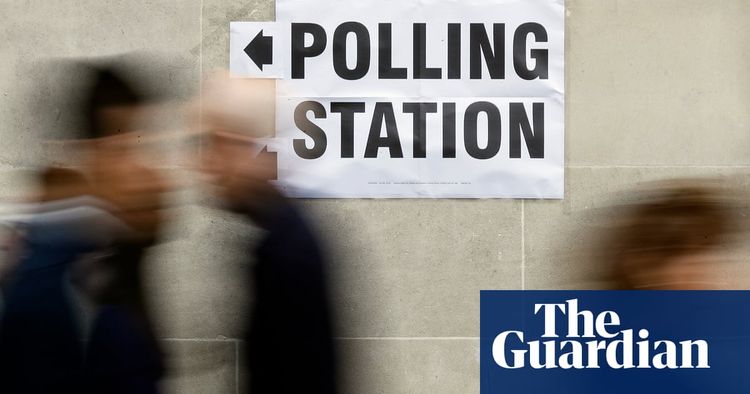Polling stations open across UK for general election

People are participating in voting all over the UK in a general election that is likely to result in a Labour government being elected for the first time in 14 years.
Voting centers in 650 areas all over England, Wales, Scotland, and Northern Ireland started receiving voters at 7am on Thursday. The votes will be tallied right after, and the outcomes will be revealed during the wee hours of Friday.
In a blog post published as the polls opened, Keir Starmer, the leader of the Labour party, wrote: "Today, you have the power to vote for change." Prime Minister Rishi Sunak also took to the same platform to encourage voters to prevent a Labour supermajority.
The Liberal Democrats posted on Twitter that this upcoming election is our opportunity to bring about the necessary changes for our country. The Scottish National Party also shared on Twitter that voting for them will help achieve independence, rejoin the European Union, get rid of the two-child benefit limit, support a fair transition, and maintain free tuition.
The competition ends a six-week period where the prime minister and the opposition leader campaigned. This comes after the UK experienced three Conservative prime ministers in almost five years.
This is the initial election in July since 1945, following Sunak's unexpected decision to hold a summer vote six weeks ago.
Labour is campaigning for election with a promise to bring about change. They have pledged to establish a new energy company owned by the public, take the railways into public ownership, reduce net migration, hire 6,500 teachers, and provide over 100,000 new nursery spots.
The Conservative party has pledged to enforce mandatory national service for individuals aged 18, implement an annual limit on migrant visas, hire 8,000 new police officers, and decrease national insurance by an additional 2p in hopes of eventually eliminating it altogether.
High-ranking members of the Conservative Party, including a close ally of Sunak, were admitting defeat on Wednesday. Starmer accused the Tories of attempting to reduce voter participation by claiming the election outcome was already decided.
Throughout the election campaign, the Labour Party has consistently held a 20-point advantage in opinion polls and is looking to achieve significant growth in England, Wales, and Scotland. According to a YouGov poll released on Wednesday night, Starmer's party is projected to secure its biggest majority in recent times.
This election would be a big change from the one in December 2019, when Boris Johnson beat Jeremy Corbyn and gave the Conservatives a majority of 80 seats. Johnson's main focus during that campaign was on delivering Brexit.
Just a few months after becoming Prime Minister, Johnson faced the challenges of the Covid-19 pandemic. He stepped down in July 2022 when his own party members no longer supported him, following a series of controversies such as Partygate and mishandling internal misconduct claims.
After Johnson, Liz Truss took over as the leader in September 2022, but her time in charge was a failure. She only lasted 45 days before being forced to step down. Her mini-budget didn't impress the markets and led to the pound reaching an all-time low in value.
Sunak, who lost to Truss in the Conservative leadership race in 2022, has since assumed leadership but has struggled to improve the party's success.
Starmer has been leading the party since April 2020 and has made significant changes during his time in office. He suspended Corbyn, who he previously served under in the shadow cabinet, and is now running as an independent candidate in Islington North.
Many of the lesser-known political parties, such as the Liberal Democrats, Greens, and Reform UK, are expected to do well in the upcoming election.
Ed Davey, the leader of the Liberal Democrats, is leading a campaign focused on attention-grabbing actions that experts predict will result in the party winning many seats in traditionally Conservative areas. The Liberal Democrats have promised to provide free personal care for individuals in England, ensure all citizens can schedule an appointment with their GP within seven days, and prohibit the release of sewage into rivers and oceans.
The Green Party is focusing on appealing to unhappy left-leaning voters in four districts, including Bristol Central, where Thangam Debbonaire, the shadow culture secretary, is running for reelection. Their proposed measures include implementing a tax on assets exceeding £10 million and nationalizing railways, water companies, and the major energy corporations.
Reform UK is expected to secure as many as three seats, despite controversy surrounding some of its candidates and supporters making racist and sexist comments. According to polls, Nigel Farage is predicted to finally win a seat in parliament after seven unsuccessful attempts, with a win in Clacton-on-Sea. The party aims to halt immigration, except for individuals with important skills, and eliminate initiatives aimed at achieving net zero carbon emissions.
The first-past-the-post system will determine the selection of 650 MPs. The candidate who receives the highest number of votes in each seat will be elected. In order to have a majority, a political party needs to win over half of these seats, which means at least 326 seats.
Any adult British citizen, as well as citizens of Commonwealth countries and Ireland who live in the UK, can vote. To do so, they must have signed up to vote beforehand and bring a valid form of identification to the polling place.



















































